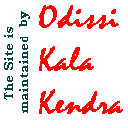|
|
|
 |
Principles of Classical Dance |
|||
|
Principles
of classical dance have their origins in the Vedas, which
detail the forms of dance and drama Dance is considered
to be a form of worship and meditation. The Indian classical dance involves body as well as mind. The major dance forms are : Bharat Natyam : Named after sage Bharata, the author of Natya Shastra (manual of dramatic art), originated in temples, used to enact religious themes. Involves elaborate system of postures, hand gestures, foot movements (13 postures of the head, nine of the neck, 36 of the eye, 37 of the hand) Kathakali : Lyric dance of Southern India, involving intensive footwork. Performed with acrobatic energy and highly stylized pantomime. Manipuri : Dance associated with Manipur in Northeastern India and characterized by gentle lyrical style Kathak : An intricate dance of northern India that includes passages of narrative pantomime Odissi : A romantic dance of love and passion |
|||